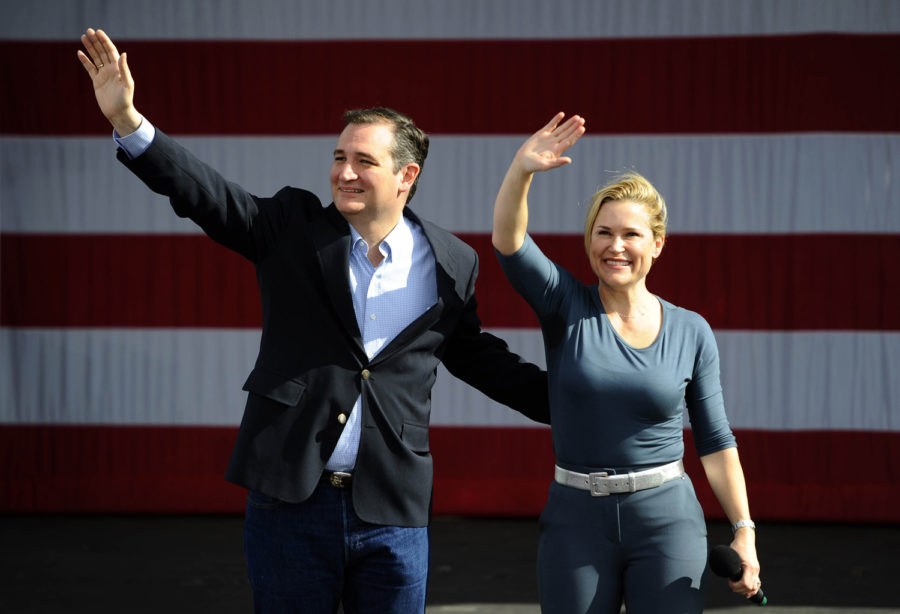America's long presidential campaigns hinder political discourse
Mar 30, 2016
The ability to move across socioeconomic lines, the social freedom and equality of America are just a few reasons why it’s such a special place to live. However, one unique trait of America sticks out like a sore thumb: its never-ending presidential campaigns.
Consider that Ted Cruz threw his hat in the ring for presidential candidacy March 23, 2015. That is an unfathomable 596 days before the general presidential election takes place Nov. 8, 2016.
Now compare that to the United Kingdom’s election timeline. The U.K. has a much more efficient way of electing public officials. In 2015, Parliament was dissolved March 30. Voting took place May 7 to decide the new officials. That’s 38 measly days, and Britons even complained about the campaigning length of that time span. http://www.wsj.com/articles/our-endless-presidential-campaigns-1429294188
Here in America, we simply accept the length of presidential campaigns as the status quo and choose not to question it; however, the length of these campaigns causes major issues.
Primarily, cutting down on the length of presidential campaigns will cut down on the cost of these campaigns and the impact of Super Political Action Committees. Consider that in 2012, Barack Obama had raised $1.1 billion in campaign funds with over a month left until election day. Mitt Romney was not far behind with $993 million raised at that point. That is over $2 billion combined that could go to so many better aspects of American life. http://www.wsj.com/articles/our-endless-presidential-campaigns-1429294188
Get The Daily Illini in your inbox!
Those $2 billion could go toward more substantial things such as public education, social security or health care. Instead of getting bombarded with hundreds of political ads come primary and general election time, we could afford to cover more Americans who can’t afford healthcare.
Additionally, Super PACs have long been synonymous with running presidential campaigns and influencing candidates to back their views. With a shorter timeline, Super PACs would have much more limited influence over the elections as a whole.
And with more candidates spread over a shorter amount of time, contributions would be diluted and cancel each other out. Currently, the nearly two-year long process allows Super PACs to wait and see who is winning in the polls before pledging to donate to a candidate.
The dilution of issues is another negative consequence of America’s extended presidential campaigns. Because presidential races last so long, there is a lot of time spent focusing on frivolous matters instead of a candidate’s major policies.
Last week, an anti-Trump Super PAC ran an ad that included a naked photograph of Donald Trump’s wife to insinuate that she would be an unfit first lady. Trump responded with a threat to “spill the beans” on Ted Cruz’s wife, Heidi Cruz, who has battled depression in the past.
This is just one of many examples of pointless issues thrust into the mainstream media because there isn’t enough news and policy to cover 600 days worth of significant presidential coverage.
The final, and probably most important, issue with the current system is that it essentially takes a year off the current president’s tenure. You hardly ever hear President Barack Obama’s name anymore in the media as it is all about the upcoming election. But the president’s lack of coverage is less alarming than the policy decisions that are essentially being taken away from him.
For example, Obama just nominated Merrick Garland for the Supreme Court opening. By all accounts, Garland is a very moderate, qualified judge that would fit well within the Supreme Court. However, the majority of the senate is unwilling to even listen to a hearing because they believe it should be the next president’s job.
To leave an open seat on the Supreme Court for almost a year just because a new president is about to be elected is absurd.
The harms of a lengthy presidential election are endless, and anytime there is an opportunity to lower the number of political advertisements on television, it should be taken.
Jason is a senior in LAS.?[email protected]






